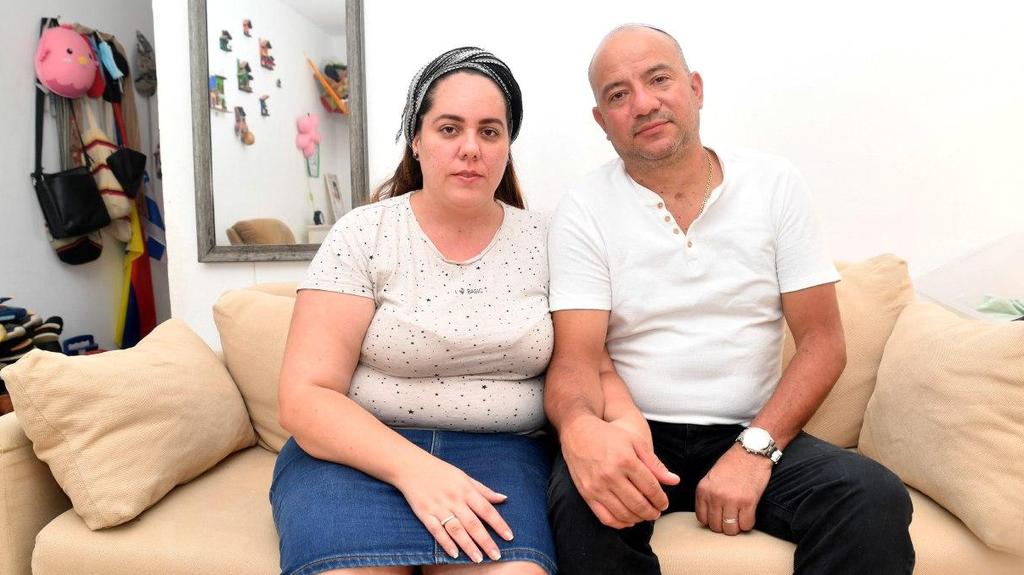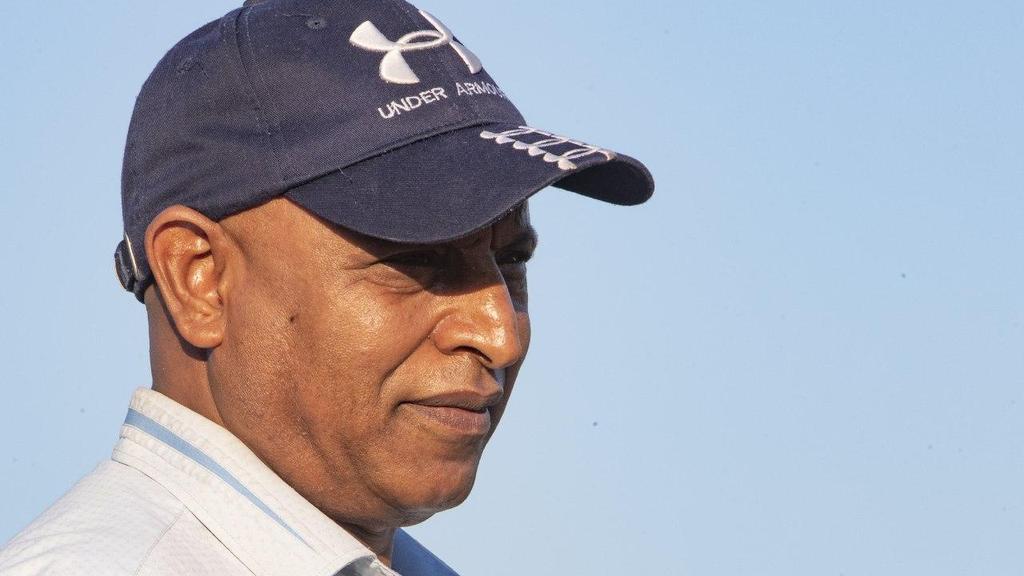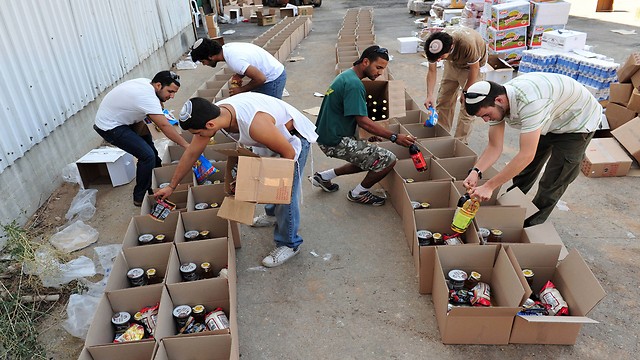A poll recently conducted by the Jewish Agency among 3,000 families and 4,000 youths who were at risk or from low-income populations in Israel painted a very grim picture of those who have effectively been left behind.
The poll data showed that 25% of families who were not previously receiving regular financial support are in need of it during the coronavirus pandemic.
4 View gallery


Thousands protesting in Tel Aviv over what they say is a lackluster economic response from the government to the coronavirus crisis
(Photo: Moti Kimchi)
The poll also showed 73% of families at risk are in need of help with food, 26% need assistance to pay their bills and 20% require psychological support.
Idit and Jorge Zinger, parents of two girls from the southern town of Dimona, have been unable to find work for nearly four months.
Since the beginning of the outbreak, they - and hundreds of thousands of other Israelis - have become mired in a severe financial crisis, and they simply do not know how to get out of it.
Idit used to work part-time at a local school, but that ended when the coronavirus pandemic shut down educational institutions across Israel.
4 View gallery


Idit and Jorge Zinger. Their daughters sleep in the living room
(Photo: Haim Hornstein)
Her husband Jorge used to work at a scaffolding factory but was fired several weeks before her. For now, their dream of a home where their daughters can have their own room is on hold, and the girls keep sleeping in the living room.
"[The pandemic] changed our lives," Idit says.
"I cannot send my daughter to kindergarten if I don't have the money. Essentially, I have a debt to the preschool that I cannot pay. I cannot pay our electricity bill either - we are deeply in debt," she says.
"We are in a bad situation, my husband used to be well paid and suddenly from having two paychecks we are left with half of one," she says, referring to the unemployment benefit received by her husband.
"I don't work and I am not eligible for unemployment benefits."
Thousands of others who were already struggling are now closer than ever to not being able to put food on the table.
Ilan Casa, a single parent of five from the northern town of Migdal HaEmek, has also found himself out of work for an extended period.
4 View gallery


Single parent Ilan Casa just wants to work to feed his give children
(Photo: Gil Nachushtan)
Even before the virus hit, he struggled to make ends meet. He also says that the coronavirus made everything worse.
"I want to work and make an honest living, but I do not have any choice, I cannot find a job. I have been at home for a long time," he says.
Casa, who alone must feed his five children, used to work full time in a factory. Last January, the factory where he worked went through cuts and he was put on part time hours.
He was placed on furlough when the pandemic broke out and has not since returned to work.
He is not eligible for unemployment benefit and has not income apart from a stipend from the National Insurance Institute.
"I'm the only provider and you cannot provide for a family like this. I hope it does not get any worse. I only spend money on things I need, such as food for the kids so they do not go hungry," he says.
Ruti Scheinfeld, CEO of the Jewish Agency's Potchim Atid (Opening the Future) Youth Partnership, says the pandemic has had a devastating impact on those who were previously facing financial difficulties.
"Many low income families, who have already had to deal with so many daily financial and welfare challenges, and the children of these families who have to deal with emotional, social and educational hardships too, have found themselves during the pandemic in extreme situations that lead to real distress," says Scheinfeld.
"This it is how it always works; the weak become weaker. And this is exactly where the state must intervene and support these families. Not huge conglomerates that lost a little during the pandemic, but families who are fighting for the right to live in dignity."


